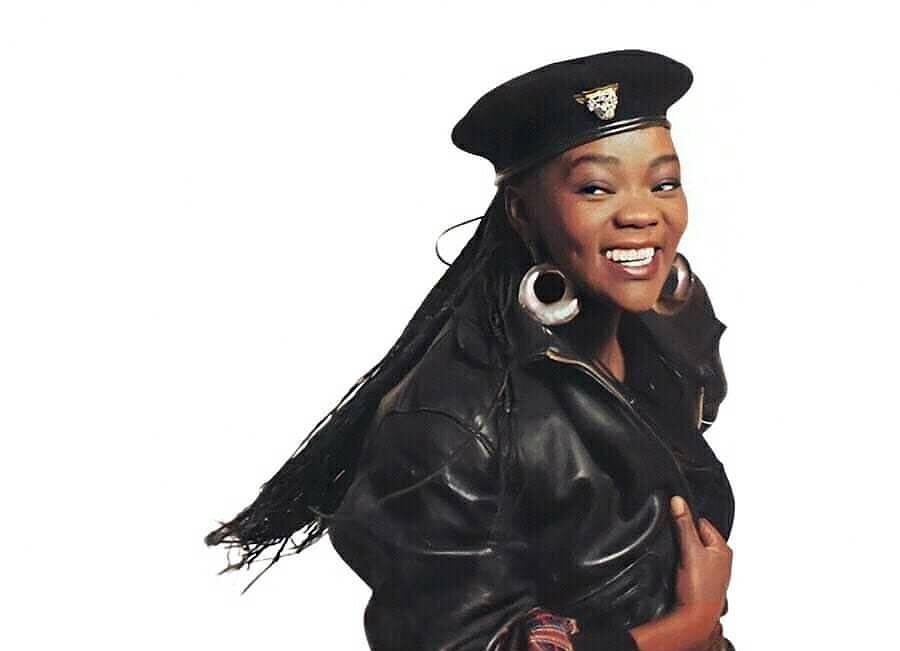Highlighting the Life of Brenda Fassie - The Queen of African Pop
23 March 2023

Photo: Instagram
Subscribe and Download Exclusive DJ Mixes on MDUNDO
Makokosie Fassie always knew her daughter, the late legendary South African singer Brenda Fassie would turn out a musical star one day. In fact, she always told her that she was humming at birth. And the celebrated ‘Vulindlela’ star singer never forgot these words her mother often repeated.
“When she was telling me the story she said ‘I was humming when I was born’,” she says in a 2000-shot documentary where she speaks to Dali Thambo.
Download All Brenda Fassie Songs on MDUNDO
What Was Brenda Fassie’s Early Life Like?
She was born in Langa, a small township in Cape Town in 1964. Fassie was the youngest of nine siblings – six boys and three girls. Life was fine for her while growing up and one of the things she fondly recalled was enjoying the love from her parents as a young girl especially because she was the youngest.
Her mother was a pianist while her father worked as a tap dancer. Their musical influences inspired her to do music at a young age. She fondly remembered in past interviews before her death in 2004 that her singing came so early when she was only three years old. Years later. She conquered the world’s music scene with a powerful voice and dynamic stage presence for decades.
How Did Brenda Fassie Start Her Music Career?
Piano and tap dancing from her parents inspired her to do music. But poverty also pushed her to get out of her comfort zone. Langa is not only among the racially segregated townships in South Africa, but one of the poorest too. The township knew her for her presence in talent shows and for singing in a local choir but her dream was for the township to know her as a big artist.
Although she had a gorgeous voice and an artistic brain, Cape Town had limited opportunities. On the flip side, Johannesburg had everything she needed to become a star. The only hurdle was convincing her parents and when she couldn't, she took off by hitchhiking rides to South Africa’s capital.
She moved to Soweto to look for her South African playwright friend Gibson Kente who hosted her for a while. Kente knew her rebellious side and potential too so he offered to help her realize her musical dream. They knew each other for many years since Kente was born and bred in Cape Town. Brenda Fassie met many amazing people through Kente and they helped shape her career into a superstar. Among them is her first girl band, Joy where she was the lead singer.
It was a smooth one for her with the band because Kente had already taught her how to be confident and how to keep her charm with her stage presence.
Brenda Fassie's Rise to Fame
The ‘African Queen of Pop’ met Blondie and Papa, a duet who challenged her music will as a vocalist. She was so young but deeply talented with every skill of a superstar. She stole the duet’s limelight and she decided to launch a solo career and kicked it off with her album, "Weekend Special," which debuted in 1983. It became such a huge success and sparked a fire for greatness in her.
“Weekend Special” sold over 200,000 copies and thrust her as a major force in South African music. Other hits such as ‘Too Late For Mama’, ‘Vulindlela’ and ‘Black President’ set a course for her success in the international music scene. In 1997, she released "Vulindlela" which is her most famous song worldwide. This song made the Tanzania government accord her a military escort during a publicity tour to the East African nation in 2001.
Why was "Vulindlela" so famous? Because Brenda Fassie captured the emotions of fellow South Africans as they fought the apartheid rule and called for social change. She sang in Xhosa, a determined woman working towards overcoming life's challenges and making her dreams a reality. It resonated positively with Mzansi people who were at the time grappling with political changes to make their lives better.
She danced along to this song together with the late Nelson Mandela at Kora Awards 2001.
What Was Brenda Fassie’s Legacy and Impact?
Through music, Brenda Fassie tackled political and social issues. She was a big voice in campaigning for the end of the oppressive apartheid rule in South Africa. The mother of one was also a great campaigner for LGBTQ rights and called for their inclusion in society. Her music’s legacy is synonymous with breaking social and political barriers.
Also, she contributed immensely to the growth of Kwaito, a South African music genre blending house music elements with traditional African rhythms and melodies. Fassie exposed Kaito to a broader audience within South Africa and internationally.
Furthermore, her songwriting inspirations made her a cultural icon and a woman many people looked up to for inspiration in life. One of her attributes that made her a beacon of hope for South Africans was her will to speak up against ills.
Brenda Fassie projected an image of a resilient woman and fighter but she had her low moments in life too. Her biggest controversies came from her dating life; she dated both men and women. Conflict and highly publicized drama punctuated her relationships.
However, her biggest nightmare in life was an addiction to drugs which she never ever got to stop using despite her many public announcements of willingness to be clean. Sadly, they took a toll on her in 2004 when she took her last breath at 39 leaving behind a legacy of a woman who pioneered political, and social change through music and a child.






Leave your comment